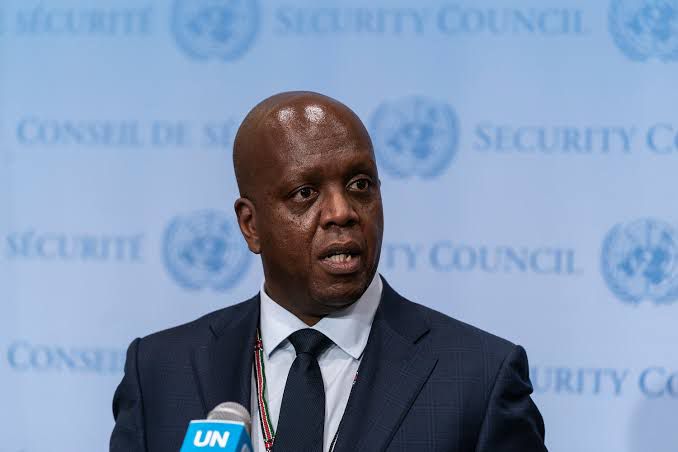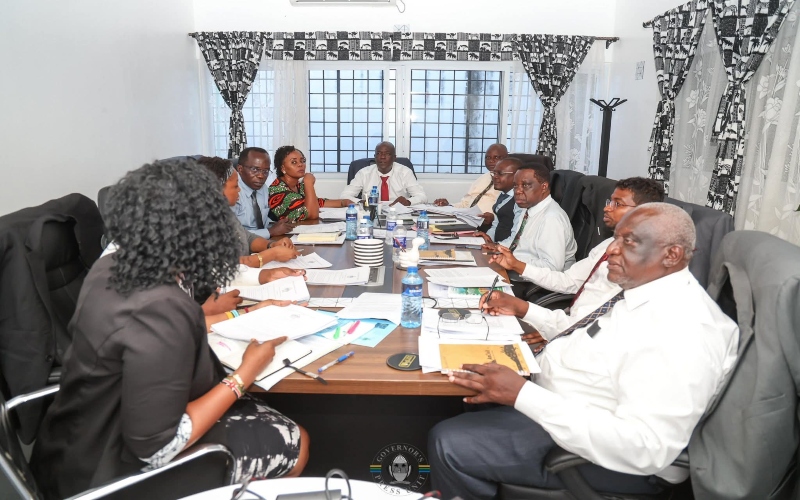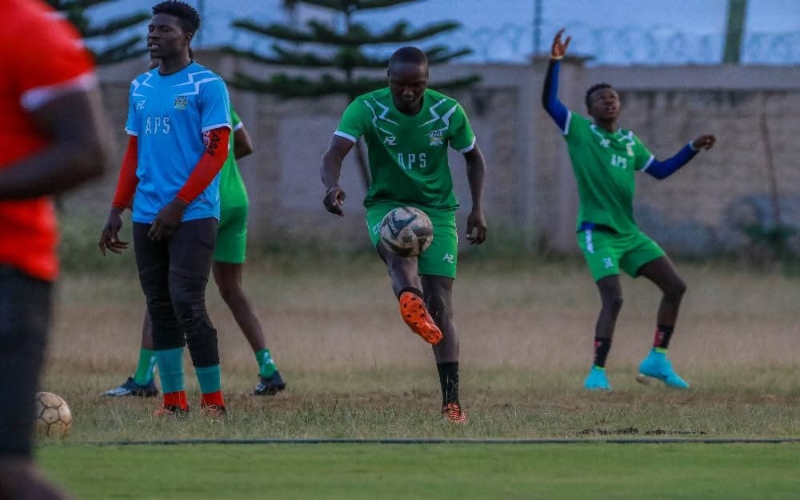Ex-UN envoy tells US to address domestic issues instead of focusing on Kenya's

In his post, Kimani noted that "Since my former @ForeignOfficeKE colleagues are restrained by their diplomatic sensibilities," he would respond.
4Kenya’s former UN envoy Martin Kimani has sharply criticised the United States for its condescending attitude and tone in addressing Kenyan affairs.
In a strongly worded statement posted on X on Friday evening, Kimani rebuked Washington, calling it a “grating lecture from the US experiencing political violence, plummeting trust in its electoral institutions, and an uncertain transfer of power.”
More To Read
- UK sanctions Sudan’s RSF commanders over atrocities amid ongoing conflict
- UNAIDS hails Kenya–US health framework as major boost for HIV response
- Trump faces rising backlash over remarks targeting Somali immigrants
- Trump administration halts immigration applications for migrants from 19 nations
- Iran boycotts 2026 World Cup draw after US denies visas to delegation
- Ramaphosa hits back after Trump says South Africa won’t be invited to 2026 G20 summit
“Lecture less, renew US democracy, and deliver a ceasefire in Gaza,” stated Kimani, who is currently in New York serving as the Executive Director for the Center on International Cooperation (CIC), a non-profit research center at New York University (NYU).
This response came after the US Embassy in Kenya issued a warning to the Kenyan parliament on Thursday regarding the vetting of cabinet nominees, a move that was widely criticised by Kenyans on social media as interference in internal affairs
“As Kenyans look ahead to the vetting of Cabinet nominees beginning today, we recognise the importance of integrity in public service and the National Assembly’s vital role in upholding Chapter Six of Kenya’s Constitution,” posted the US Embassy in Nairobi on X.
In his post, Kimani noted that "Since my former @ForeignOfficeKE colleagues are restrained by their diplomatic sensibilities," he would respond.
Since my former @ForeignOfficeKE colleagues are restrained by their diplomatic sensibilities, I will respond to this grating lecture from a US experiencing political violence, plummeting trust in its electoral institutions, and an uncertain transfer of power. Lecture less, renew… https://t.co/q5LzrsODu6
— Martin Kimani (@AmbMKimani) August 2, 2024
But what did he mean when he said his colleagues are unable to respond due to diplomatic sensibilities?
Kimani pointed out that his former colleagues at the foreign office, led by Musalia Mudavadi and Sing’oei Korir, are restricted by diplomatic protocols in how they can respond to criticisms.
He used the current significant internal challenges in the US, such as political and gun violence, to suggest that the United States is not in a strong position to lecture other countries on governance or policy.
Kimani emphasised that the US should focus on addressing its domestic issues and contributing to international peace efforts before offering advice to other countries.
What is the response of Kenya?
The Eastleigh Voice reached out to Foreign Affairs Principal Secretary Sing’oei Korir hours after the embassy issued the statement on Thursday to ask for a reaction.
The top official, who oversees Kenya's foreign policy, told this outlet that the ministry was in full agreement with the US statement.
“100 per cent concur,” he said in a brief response to this writer.
A reluctant US?
The mission has cultivated a close relationship with President Ruto, who is said to be a close confidante of the American ambassador, Meg Whitman.
Yet, it was unable to publicly call out the government for its excesses during the protests, which saw the Kenyan police being overpowered by angry youthful protesters after they killed more than a dozen people.
Only a joint statement issued by Western Ambassadors prompted the mission to call for calm.
Separately, Secretary of State Anthony Blinken last week had a phone conversation with President Ruto, weeks later, during which he called for police accountability following the intense protests.
The street turmoil that started in June dealt a blow to American President Joe Biden’s administration’s strong support for President William Ruto, a key US ally in a continent where American influence is rapidly diminishing.
Just a day before the protests started, President Biden had officially designated Kenya as a major non-NATO ally, and Ruto had overseen the departure of 400 Kenyan police officers to Haiti on a controversial security mission largely funded by the United States.
The non-NATO ally status, facilitating increased security collaboration between Kenya and the United States, was a major outcome of President Ruto’s recent state visit to Washington, the first by an African leader in 16 years.
During the visit, he was honoured with a state dinner at the White House attended by celebrity guests and former President Barack Obama, whose father hailed from Kenya.
For Ruto, the state visit marked the pinnacle of his presidency which has so far been marked by extensive global travel. Since winning a hotly contested presidential election in August 2022, he has visited numerous countries.
For the Biden administration, the visit represented an opportunity to solidify a crucial partnership in Africa amid growing influence from competitors like Russia and China.
Top Stories Today












































